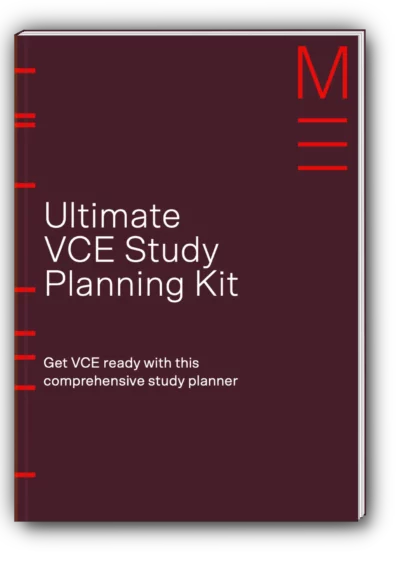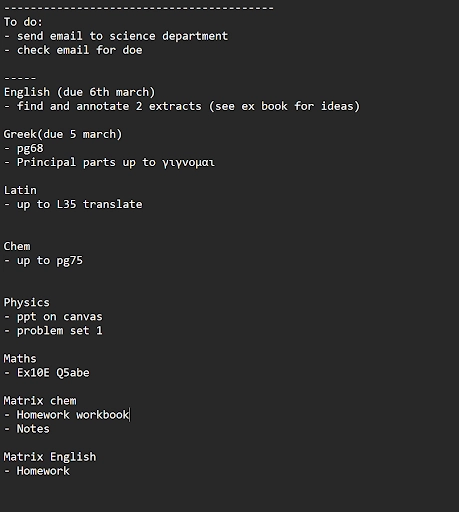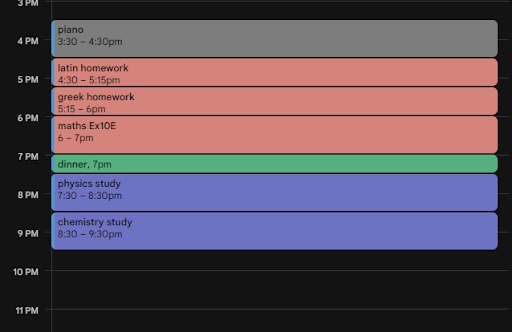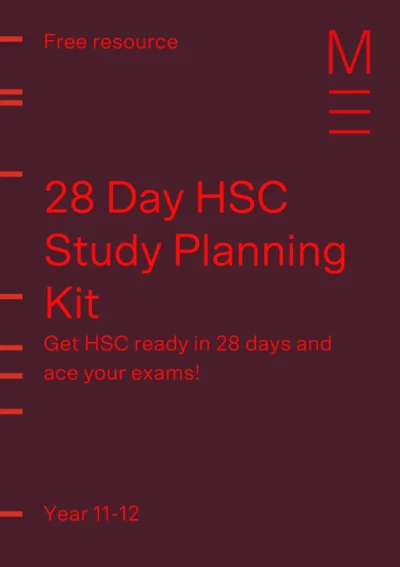Welcome to Matrix Education
To ensure we are showing you the most relevant content, please select your location below.
Select a year to see courses
Learn online or on-campus during the term or school holidays
Learn online or on-campus during the term or school holidays
Learn online or on-campus during the term or school holidays
Learn online or on-campus during the term or school holidays
Learn online or on-campus during the term or school holidays
Learn online or on-campus during the term or school holidays
Learn online or on-campus during the term or school holidays
Get HSC exam ready in just a week
Select a year to see available courses
Science guides to help you get ahead
Science guides to help you get ahead
Matrix scholarship student, Solomon Tan, shares his step-by-step approach to overcoming procrastination in Year 12—so you can stay focused, make the most of your study time, and achieve your best results!

Join 75,893 students who already have a head start.
"*" indicates required fields

Join 8000+ students each term who already have a head start for English, Maths, OC/Selective Prep, Science, Biology, Chemistry or Physics.
Have you ever sat to begin your study or homework session, only to actually start two or three hours later, when a sense of urgency and panic has arisen? In fact, you might have clicked on this article because you are procrastinating right now! For many students, this is a common experience. Even though I still struggle with procrastinating in Year 12 sometimes, with tips and wisdom passed down to me, you too will be able to manage your procrastination so that you can study and get the grades you want!
Get VCE ready with this comprehensive study planner. Fill out your details below to get this resource emailed to you. "*" indicates required fields
Free VCE Study Planning Kit Download

Free VCE Study Planning Kit Download
When you get home, it’s easy to just sit down, sleep, or doom scroll instead of study. There are many other forms of procrastinating in Year 12 that you may not have realised, and here are some of the most common ones for me.
Sometimes when I stare at my calendar and see a block of English study coming up, I panic and spontaneously feel the need to check my phone and emails on my laptop. “I might have received a new notification”, I tell myself. But really, I do this because it is so much easier than actually beginning my study session.
It doesn’t help that the amount of digital content available is seemingly infinite. Personally, I watch way too much YouTube, and that is usually my “easy option out”.
On Youtube, only three videos can roughly equate to an hour!
Before you know it, you go to sleep without studying at all or drag out your study session, sacrificing sleep! Neither option is ideal.
Feeling overwhelmed or exhausted after a long school day makes studying feel impossible. Sometimes, when I am studying one of my harder subjects like Greek, Latin, or English, I unintentionally micro-sleep.
While quick naps help some people, I often wake up groggier and in a worse mood, making it even harder to focus. For me, naps usually do more harm than good.
When I am stressed with a big task ahead of me, suddenly other hobbies such as reading or watching “educational videos” become very appealing.
These hobbies bring a false sense of security, tricking us into believing our lack of achievement amounted to something. Essentially, I’m gaslighting myself into thinking that reading my Brandon Sanderson book instead of writing that essay due next week is a good thing. Sure, it might be “related” to what I’m learning in some obscure way, but it isn’t going to help me write my essay.
Passive activities can become a mechanism for procrastination.
When it comes to studying, it always feels like there is another option, a path of much less resistance. Here are my tips on overcoming procrastination and actually studying.
I can’t study with lots of random papers and books on my desk. So I make it a game to clear my desk as fast as possible so that my study space is “primed” for studying.
Make sure you have enough room on your desk to comfortably lay out the books you are going to study in front of you.
Put your phone somewhere that is far away. My room is upstairs in the house, so I will put my phone in my dad’s study (downstairs) next to his window. When I want to check my phone, he will keep me accountable.
You don’t have to do this, but I recommend putting it in a drawer or on a bookshelf outside of your bedroom. Out of sight, out of mind.
By writing out a list of what you need to achieve, you will realise how much needs to be done, and this will make you feel more inclined to study or complete your homework. I use Microsoft Notepad, but you can use any notebook or similar app to note down what you need to do. The whole point of this is to visualise what needs to be done.

Time blocking means setting aside specific time slots for each task. This helps you stay focused by adding a sense of urgency—you know exactly how long you have for each task and what needs to be done before the day ends.
Without a plan, tasks can drag on much longer than necessary because there’s no pressure to finish them. This rings true to Parkinson’s Law: “work expands so as to fill the time available for its completion”. When a task is given an indefinite period of time to be completed, there is a lack of urgency for completion.

Do you find that you’re super focused at school, but as soon as you get home, that motivation disappears? A great solution is to extend your school day by studying at the library before heading home. This keeps you in a productive mindset and removes distractions that might be present at home.
If your home environment is noisy or not ideal for studying, the library can provide a quiet, structured space—just like school. I personally recommend large study groups if you are going to do this because it can be very easy for someone to start distracting everyone. It could make your “study session” even less productive than your doom-scrolling at home.
Try to stay off social media while you head home so you can remain in the calm and focused headspace of school. It can make actually starting to study much easier.
Instead, chat to your friends while you are on the train, and enjoy nature while you walk home. Then, sitting down to study will come more naturally.
Social media should not be your “rest” activity in between study sessions. A study by University of Sydney shows that checking your phone during breaks doesn’t actually give your brain a proper rest.
To stop procrastinating in Year 12 altogether, you need to have certain habits that you can repeat again and again. Here are some strategies that have helped me.
By having a clear picture of what you want to achieve (grades, a university course, a career), you remind yourself of how much effort and urgency you need to put in. If you don’t have a goal in mind, take some time to set one.
Be able to remind yourself of your own “why?” so you can get on with your work.
Time spent studying is not a measurement of productivity, but tracking your time can keep you accountable and help you stay focused. I recommend apps like YPT or Flora, which are very minimalistic and allow you to log the time spend doing what. These apps will also detect when you change apps and will send you notifications to get back on track with your studying.
A timer on your laptop can remind you of how long you have until your assessments. If you ever get lazy and lose perspective of when your exams are coming up, this tool is very helpful to keep yourself accountable as you see the countdown ticking away
Your family can be one of your biggest sources of support—if you let them in on your goals.
Instead of waiting for your parents to nag you about studying, tell them your plan and ask them to check in on your progress.
Family members are often brutally honest with each other, so they can give you honest advice on how to improve.
Finding if you study better at morning or night is important because it will affect the way you study. If you work better in the morning you should consider studying in the morning, and vice versa. By experimenting and finding the optimal study time, studying can be much more efficient and easy.
Get HSC ready in just 28 days and maximise your exam marks! Fill out your details below to get this resource emailed to you. "*" indicates required fields
Download your 28 day HSC Study Planning Kit

Download your 28 day HSC Study Planning Kit
Remember that no one is perfect. Sometimes, you may procrastinate for longer than you wanted to. I still struggle with overcoming procrastination; I even procrastinated writing this very blog!
It’s important to know that this is a common experience among most students. Be kind to yourself when you don’t always meet your own expectations. We cannot change the past, but we can learn from it to improve in the future.
Make sure to take study breaks, retain exercise, and keep in contact with friends—it will help you stay healthy during this marathon. Don’t forget to count your wins, and remind yourself during the tough times that you have made so much progress from where you have started.
—
Those were my tips for how you can beat procrastinating in Year 12, and I really hope that this article has helped you in some way. I wish you luck in your studies, and it is now time to get back to whatever you doing before this!
Written by Matrix Education
Matrix is Sydney's No.1 High School Tuition provider. Come read our blog regularly for study hacks, subject breakdowns, and all the other academic insights you need.© Matrix Education and www.matrix.edu.au, 2023. Unauthorised use and/or duplication of this material without express and written permission from this site’s author and/or owner is strictly prohibited. Excerpts and links may be used, provided that full and clear credit is given to Matrix Education and www.matrix.edu.au with appropriate and specific direction to the original content.